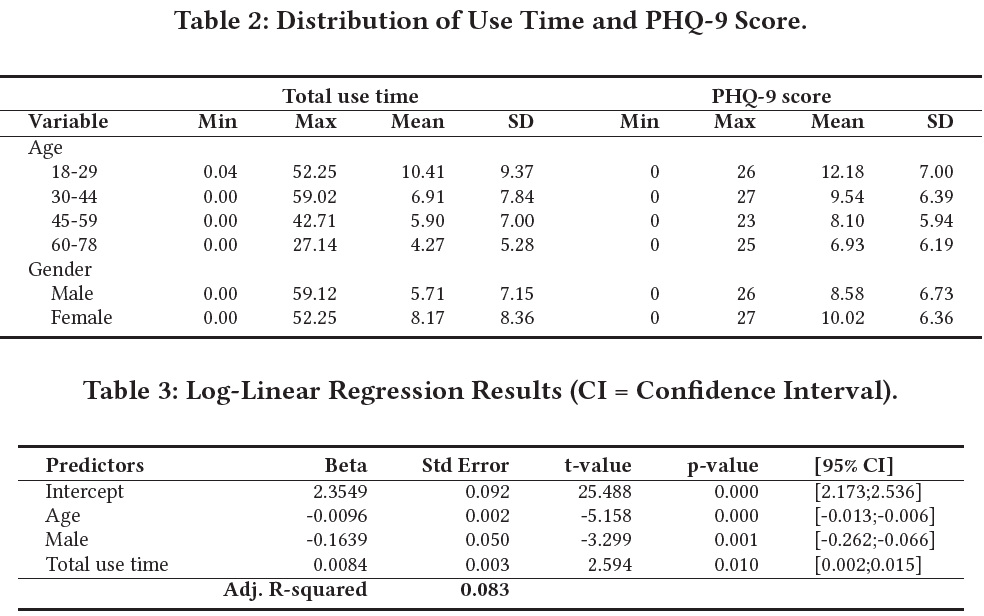With about 300 million affected people, major depressive disorder (MDD) is one of the most common diseases worldwide. During the COVID-19 pandemic, the number of cases increased even further, by 28%. Many factors may be correlated with MDD, including the excessive use of social media apps. We investigated the relationship between the use of social media and communication apps and depressive symptoms during the COVID-19 pandemic. The pandemic and social distancing like lockdowns probably changed smartphone usage times and usage patterns. While previous studies have shown an association between depression and social media usage, we report about the situation during these special circumstances. We employed a log-linear regression to examine the association of social media and communication app usage and depression. To quantify the usage, we applied the total usage time in hours of social media apps (e.g., WhatsApp, Facebook) as well as communication apps (Phone and Messaging) within one week. To measure depressive symptoms, we used the PHQ-9 score. We discovered a significant association between the usage time and the PHQ-9 score (beta=0.0084, p-value=0.010). We conclude that social media usage is a robust marker for depression severity and future research should focus on a better understanding of the underlying causality and potential counter-measures.
We presented this work as a paper at the Computing for Well-being (WellComp 2022) workshop (co-located with UbiComp, ACM International Joint Conference on Pervasive and Ubiquitous Computing). You can find the full paper here (PDF).

